Center for Arts, Migration, and Entrepreneurship
Faculty-Driven Research 2020-21
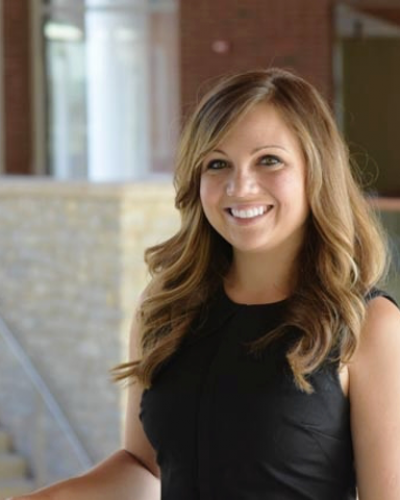
In January 2019, the U.S. government announced the Migrant Protection Protocols (MPP), a new policy that would force individuals arriving at the U.S. southern border to remain in Mexico pending an asylum hearing.
Since then, tens of thousands of asylum-seekers largely from El Salvador, Guatemala, and Honduras, have become indefinite residents in shelters embedded in communities across Mexico, where they have faced prejudice, insecurity, and violence. Yet as COVID-19 continues to spread across the country, so too may conditions for increased refugee prejudice and violence. What effect does exposure to COVID-19 have on attitudes toward asylum-seekers and migration in Mexico? This project will specifically examine the extent to which intensity of exposure to COVID-19 affects community attitudes toward asylum-seekers across Mexico via a community survey. In addition to the broader literature on forced migration and prejudice, this project enrichens our understanding of exclusionary attitudes and co-ethnicity in the midst of a global pandemic. In sum, this project will shed light on the impact of COVID-19 on everyday citizen’s attitudes toward refugees in a host country in the Global South.
Dr. Hannah Alarian (Political Science) researches the effect exposure to COVID-19 has on attitudes toward immigration, immigrants, and immigration policy. Through CAME research funding, Dr. Alarian has involved an undergraduate research assistant to conduct necessary background information crucial for the study; expanded an on-going literature review; developed necessary research and collaboration contacts with organizations and individuals at the U.S.-Mexico border; and conducted a pilot survey to understand the relationships among COVID-19 exposure and anti-immigration sentiment. The results of this pilot found no variable impact of exposure to COVID-19 and support for immigrants or immigration policy.
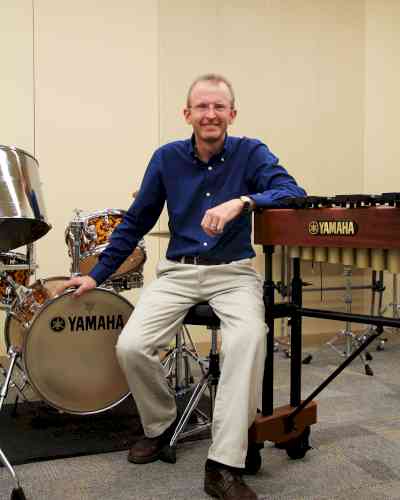
The United Nations General Assembly declared the period from 2011-2020 the Third International Decade for the Eradication of Colonialism.
While the UN focuses on the political rights of people, it is also evident that colonialism has affected (to great detriment) the cultural health of many people groups. As these groups reverse their gaze and attempt to rediscover what brings identity to their cultures, it behooves us as artists to study and support these communities of artists. This study will involve performances and presentations in Bogota, Colombia related to migration and decolonization in the Americas. The first of these performances will be in the area of steel pan and the diaspora of Trinidad. The communities of African descent in this country have a strong identity tied to this instrument, and this performance will pay homage to this tradition. The second aspect of this study will involve presentations on the history of percussion traditions in Colombia as they relate to the migration of people groups in the Americas. These events will take place in June of 2021 at the College Music Society International Convention and other scholarly venues in Bogota.
Events associated with Dr. Kenneth Broadway’s proposal were cancelled due to Covid 19 epidemic. CAME supported Dr. Kenneth Broadway’s performace of a recital titled "Intersections” at the College Music Society National Conference in Long Beach, CA on September 22, 2022. The performance featured works by John Psathas, Chad Floyd, and Josh Gottry. The word intersection is defined as “a point at which two or more things intersect.” In mathematics, it can be the point where two sets share common elements. By contrast, in music we often attempt to separate “classical” music (art music) from “popular” musical styles without consideration of their common development and similarities. This performance blurred the lines between the two genres and explored their intersection points of music with culture and the physical “being” through compositions for percussion. The term “mentacide” can be defined as the process of systematically altering beliefs and attitudes, especially through the use of drugs, torture, or psychological stress techniques. Mentacide by John Psathas utilizes the snare drum and accompaniment track to simulate this hypnosis or “brainwashing” event. Chad Floyd’s Triptych Boom merges the worlds of popular styles with art music through its backing track and combination of jazz and rock techniques for the snare drum. Finally, Outside the Box by Josh Gottry explores the juxtaposition of hand drumming on cajon with the pop music world as well as more traditional world music approaches.
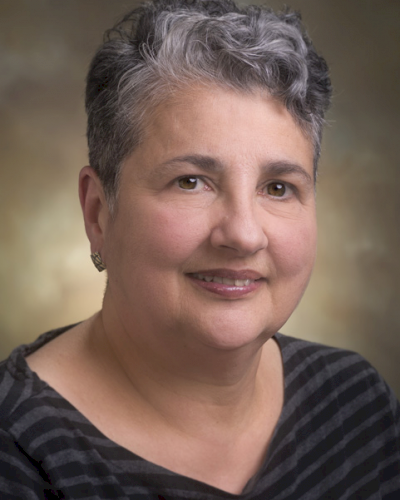
JumpstART is an annual design-thinking workshop offered each spring that empowers students in the arts, engineering, and entrepreneurship through collaborative exploration, discovery, divergent thinking, and professional mentorship. It is supported by the College of the Arts, the UF Entrepreneurship & Innovation Center (EIC), and the UF Engineering Innovation Institute and will partner with CAME for the upcoming twelfth JumpstART event.
Special support is also provided by Duane Bray, partner and global head of talent for IDEO, the well-known global design company whose mission is to “create positive impact through design.” Bray, an alumnus of the SA+AH Graphic Design MFA program, facilitates the event through its brainstorming, prototyping and problem-solving steps.
The 2021 JumpstART program, through the generosity of CAME, will include a second speaker/moderator that has experience in working with a diverse community and can be a connection to the Gainesville Entrepreneurship and Adversity Program (GEAP) allowing for an increase in community collaboration. GEAP is an integrated, multi-faceted program to empower those living in adverse circumstances to create and grow their own businesses. This added speaker will be a nationally known community leader who is able to address success in their community and can share this expertise with us.
JumpstART 2021 was a design-thinking workshop empowering students in the arts, engineering, and entrepreneurship through collaborative exploration, discovery, divergent thinking, and professional mentorship. Through CAME support, the program expanded to the community at large through a public keynote address titled “The Art of Leadership.” This address was delivered by William Strickland, a nationally-renowned community leader, author, and businessman. More than 140 individuals from across campus and the surrounding community participated in this discussion. Following the keynote, 16 students representing the arts, engineering, and entrepreneurship worked collaboratively to develop solutions to challenges facing a community non-profit, Gainesville Community Spring, a local organization with a mission to dismantle structural poverty and spur economic mobility at a grassroots level. The keynote address and the work with Gainesville Community Spring added a rich component and exposed many individuals to deeper issues endemic such as incarceration and recidivism in the Gainesville/Alachua county area.
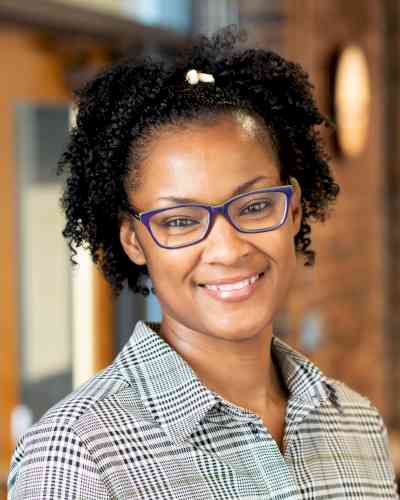
Virtual Creative Arts Academy (VCAA) is a virtual arts-infusion program designed to provide creative making experiences through an online platform.
VCAA provides opportunities for youth to get up and moving while engaging in STEAM (science, technology, engineering, arts and math) activities that are organized as a set of modular challenges delivered through video-and web-based content. The program was designed by UF COTA Faculty for use in partnership with the Community Partnership School (CPS) program. We are developing it as a tool that provides artists with a model, training, and opportunities to develop virtual content for middle school and high school classrooms.
VCAA challenges are modular, body-based challenges that use materials students have at home or can easily access. Challenge sequences have overarching themes that blend artistic or creative design with science, engineering, technology and/or math. Overlapping themes include Science, Art & Design, Theater/Dance & Computation (Computer programming), or STEM, Dance & Animation. Our initial pilot is a choreography, animation, and spoken word module that explores the concept of “going viral”.
We are currently working with middle school students as they navigate the challenge levels to create their own unique projects, which will be shared via a livestream culminating “performance” event. Livestream performances are a developing innovation. As a result of COVID-19, the future of public performances is shifting to virtual and digital platforms, creating new opportunities for emerging experiences. The final showing supports a sense of community through creative making while exposing students to opportunities to build and develop critical 21st Century skills in collaboration, creative thinking, content creation, video production, editing, and coding, to explore science ideas, and to engage in positive self-expression.
The funds for this project, initially intended to support the UFVCAA digital arts program for middle school youth during the pandemic, was shifted to the development of the Creating Healthy Communities Digital Badge Program in Spring 2022. The funds allowed for the development of a digital resources library that gave participants access to a curated list of open access articles, persons, books, and media to support them as they learn about and create creative social impact project to improve the health and well-being of communities and populations of people.
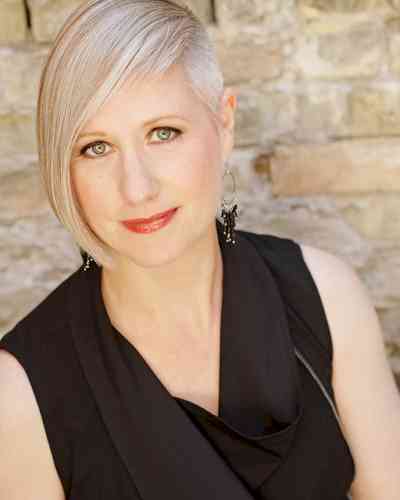
As it becomes apparent that the COVID-19 global pandemic moment will neither be contained nor short-lived into the immediate future, artists everywhere are coping with a range of multiple specters.
Live choral events have spawned some of the world’s deadliest hot spots, regular symphony, opera, dance, and theatre events are canceled indefinitely, and gig-based independent artists, in particular, are facing financial devastation. In countries such as the US where affordable, accessible healthcare is not available to many performing artists and makers, the stress of potential sickness, hospitalization, and recovery add heavy burdens to the host of unknowns.
Though always important, in this historic moment, it is crucial that artists have access to coping strategies that enhance bodily awareness, integration, and overall body/mind health. Arts processes and products are directly reliant on the artist’s capacity to be as healthy and fully embodied as possible. Through broadly accessible digital means, this project will develop ways to share somatic methods and practices with artists, most specifically the Alexander Technique. Familiar to many in music, theatre, and dance, the Alexander Technique is a century-old psychophysical practice with documented health benefits.
This flexible platform could be live streamed and/or recorded and available globally through digital delivery at no or low cost. Though initially in English, the plan is to rapidly include Spanish-speaking collaborators and translators. Once established, more languages and collaborators can be included.
Dr. Elizabeth Johnson (Theatre and Dance) worked alongside collaborator Imagen Ragone to explore creating an online platform, course, or class that delivers accessible methods for artists to have broad, digital delivery of body/health support through somatic modality and practice—specifically the Alexander Technique. Through her research with her collaborators, she archived knowledge and practices for arts performance applications. Together, they planned 3-5 short online sessions that were bilingual (English and Spanish). These served as a pilot for a possible future series of recorded and streamed classes. Through the research and practice of arts performance and collaboration, Dr. Johnson further expanded a foundation of ideas and practices that are for the health/healing, functionality, and aesthetic integrity of practicing artists.
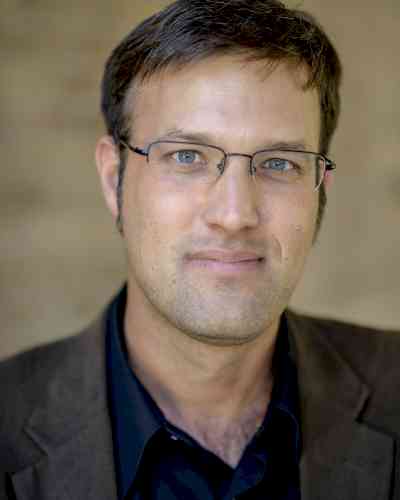
Jazz is migratory and diasporic by definition. From its inception, jazz has fused European and African elements, developing initially in New Orleans. Its principal practitioners have been African American and the music sits firmly within the tradition of Black music. For this reason, it has always been discriminated against in the academy.
Jazz would seem to be a music offering everything academics value: it contains a richly continuous spectrum of music—often within a single decade—from tonal to atonal, improvised to composed (sometimes notated, sometimes not), complex to simple, African to European, “high” to “low,” solo to orchestral, and vocal to instrumental; it has a lengthy and well-developed theoretical tradition, both inside and outside of academia; it is frequently described as “America’s classical music”; and it is an unusually egalitarian art form in many respects, from its collective and improvisatory nature to the diversity of its audience and practitioners.
Yet, the amount of attention, respect, and resources accorded to jazz in academia is wildly disproportionate to its contributions to music and music theory.
This project entails production of my fourth commercial recording, which will also be my first solo record. The album, Solo Improvisations Volume I, consists entirely of my own original material, and will be released through Origin Records’ OA2 division.
The music presented in this project problematizes the traditional categories of classical and jazz. Stylistically, it has a fluid and hybrid nature that defies genre. On the one hand, it was created by a jazz-trained musician steeped in John Coltrane, Cecil Taylor, and Ornette Coleman; on the other hand, many listeners would assume that the music is composed and therefore place it within the European classical tradition. However, the music was created through an intentionally pure process of improvisation. This focus on process does not result in the creation of a fully-notated, composed object, and the work exists outside of traditional, object-mediated musical culture.
CAME funded the production of Richard Pellegrin's album Solo Improvisations Volume I.
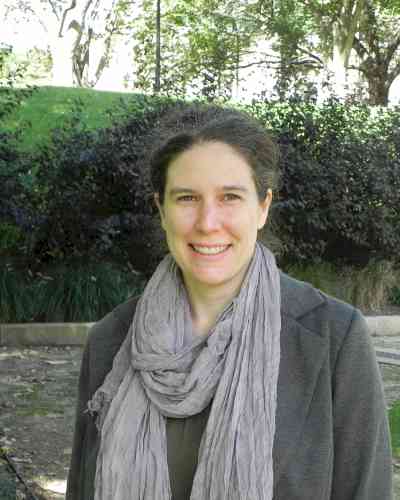
This project supports the weeklong residency in March 2021 of the Beninese “whedo-vodun-jazz” ensemble Jomion and the Uklos, based in New York City, at UF.
Jomion and the Uklos are a family ensemble led by Sam “Jomion” Gnonlonfoun, a founding member of the Gangbe Brass Band. They formed in 2007 in Benin and moved to New York in 2013. With his brothers J.B. and Mathieu, and his daughter Rose, Jomion blends together Beninese musical traditions like vodun and African gospel with diasporic traditions like salsa, reggae, and jazz to create their “whedo” music, a reference to the Fon term for the rainbow (ayidowhedo), a powerful symbol from vodun cosmology for the multiplicity of African music and spirituality in diaspora. During their residency, the group will present a collaborative concert with UF’s Brazilian ensemble Jacaré Brazil at the Hippodrome Theater, directed by Dr. Welson Tremura, that will explore the many commonalities between Beninese and Brazilian musical traditions, from the Afro-Brazilian spiritual traditions for the orisa and the vodun spirits, to the Portuguese-inflected music of Brazilian ex-slave returnees to Benin. They will also visit Dr. Sarah Politz’s undergraduate class “Traditional and Popular Musics of Africa.” Performance is a rich context for research, because it demands creativity in the areas of technology and cross-cultural education, particularly in adapting new cultural repertoires for student groups. World music pedagogy confronts the challenge of directing ensembles that bridge traditional and non-traditional music styles, using different forms of oral and written notation, terminology, and technologies.
This project explored new virtual contexts for making music through a virtual collaboration with the Beninese ensemble Jomion and the Uklos and UF’s Jacaré Brazil. The concert aired on YouTube with a live Q&A on March 17, 2021, titled “Dialogue in Diaspora: Benin and Brazil in Conversation.” The event provided an opportunity to reflect on the similarities between the remote technological realities of the pandemic and the connections and disconnections of diasporic communication across cultural, musical, and geographical boundaries. The process of producing this event was highly educational; we learned how to produce a remote, virtual event, which helped us to feel connected despite the pandemic. We also researched connections between Beninese and Brazilian music and produced a short paper about our findings that informed the performance.
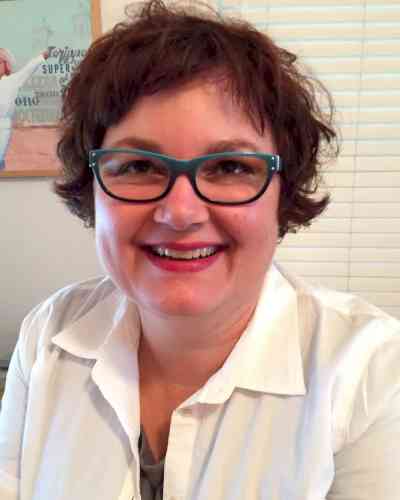
Our trans and interdisciplinary project seeks to decenter knowledge production and acknowledge local expertise gained via lived experience; question equity and equitable engagement; realize recuperative narratives (of history, place, identity); and recognize multiple voices, including those historically marginalized.
These intersections and opportunities are central to CAME’s mission and to our collective practices which we seek to amplify and expand. We draw from diverse theoretical perspectives (Indigenous methods, chicana feminism, decolonizing methodologies) and from lived interactions and voices outside of the institution. By learning with and from people in our local context, we acknowledge the complex peripheries and margins as we aim to build respectful and reciprocal collaborative relationships with people who are experts in their own experiences, communities, and contexts—particularly migrant, LatinX, and African American communities—to expand knowledge creation and belonging.
Over the next year, we will engage in the thoughtfully integrated and relational activities that comprise the beginnings of a long-term collaborative research initiative. We will host a series of small, public talks at UF featuring speakers with deep local expertise; embark on work in communities that will result in mutual learning and socially-driven design production that benefits people; identify new collaborators including other UF faculty, students across programs, and local community members and leaders to establish a practice-based working group; and build an online community engagement hub for identifying interests and capabilities of UF students, faculty, and community members to tap into opportunities that emerge through exchange and interaction. We intend to embrace and make a pluriversal world and to document our process for other faculty and students interested in engaged learning.
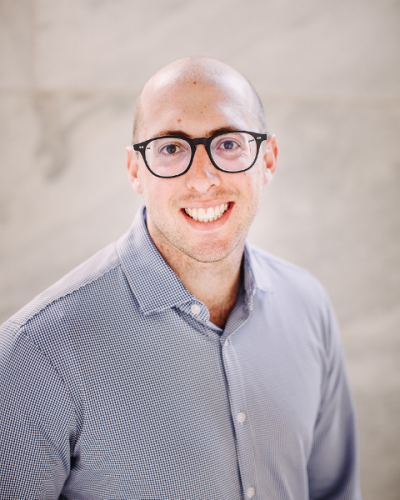
Has COVD-19 affected support for immigration? In the United Kingdom, one out of three National Healthcare Service (NHS) doctors possess a foreign citizenship.
Yet British reliance on and support for the NHS are at odds with larger anti-immigrant sentiment. This project seeks to understand whether knowledge of immigrant labor’s importance within the UK’s healthcare system – a fixture of British identity and key to combating COVID-19 – can increase support for immigrants and immigration. To answer this question, we propose an online survey experiment of a nationally representative sample of UK citizens. Specifically, we will randomly introduce subjects to real policy reports – one detailing national information about the NHS and its immigrant workforce. We will then compare preferences across these randomly assigned groups on a series of immigration policy-related questions. Participants will also have the opportunity to submit a petition to their Member of Parliament advocating in favor of labor migration. We expect that exposing subjects to information of immigrant labor amidst the global health will increase behavioral and attitudinal support for immigrants and immigration.
Dr. Rosenberg and Dr. Alarian (Political Science) complicate the conventional theory that anti-immigrant prejudice is higher among those who strongly identify with their nation, asking whether national identity can be activated to instead reduce xenophobia. Specifically, we investigate whether connecting immigration with an institution closely tied to national identity can reduce anti-immigrant sentiment among strong national identifiers. Using evidence from a survey experiments of United Kingdom citizens, we show that priming immigration within the National Health Service increases support for immigration and pro-immigrant policies. Importantly, this effect is larger for the strongest national identifiers and persists regardless of whether immigrants are framed as high- or low-skill workers and is unique to the NHS as opposed to other healthcare markets. These results have significant implications for the value of highlighting the importance of immigration as a means to mollify anti-immigrant prejudice in the Global North.
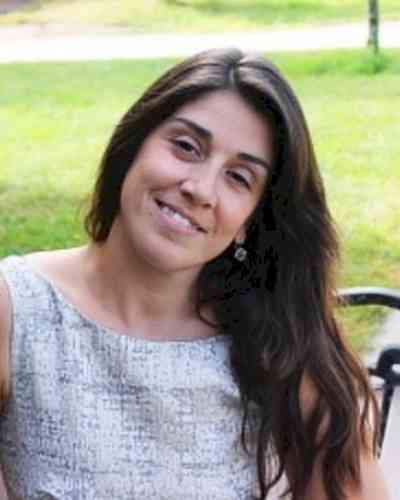
Disaster and the Body is a three-day residency with artists from the Caribbean and the Gulf Coast who create theatre and dance pieces as sites of healing and social critique in response to hurricanes and other forms of (un)natural disasters.
In collaboration with each other and UF students, artists will begin to create a performance about the ways in which disasters affect bodies, which can become sites of resistance. This collaborative time will result in a public panel in which the artists can share their work through video, discussion, and demonstrations with faculty, students, staff, and interested Gainesville residents. Following the panel, a public roundtable discussion will include Drs. Colleen Rua, Rachel Carrico, Alana Jackson, and Antonio López. In advance of the live event in January, we will host a virtual event in October 2020, during which time the artists will share their work and meet UF students.
Disaster and the Body is an ongoing project that included multiple events in the 2020-2021 academic year. In October 2020, artists and scholars came together for a webinar discussion. In April 2021, Drs. Colleen Rua (Theatre Studies) and Rachel Carrico (Dance Studies) curated a Zoom webinar that brought together a panel of artists and scholars to discuss the performing arts as sites of first response and healing for communities impacted by (un)natural disaster in the Caribbean and Gulf Coast regions. Panelists included: Choreographer Michelle Gibson (Dallas, TX); members of the Y no había luz theatre collective Yari Helfeld and Julio Morales (San Juan Puerto Rico); Dr. Alana Jackson (Center for Arts in Medicine) and Dr. Antonio López (Spanish and Portuguese Studies). The event included the presentation of new works and critical conversations with presenters and audience members, with Roxana Urrutia provided Spanish language interpretation and Kenneth Sanders provided ASL interpretation.
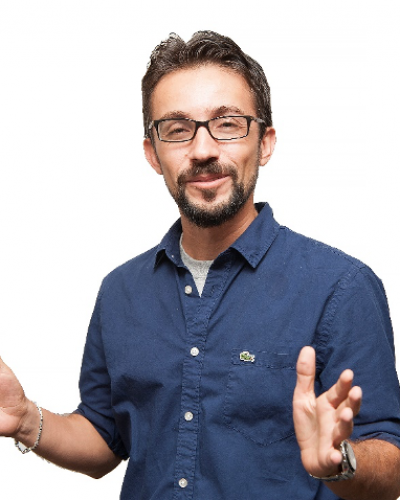
The multiracial population is a salient object seen never before in our country’s history.
Today, 9.0 million Americans report belonging to this category, thus figuring in decade-long censuses with a 1/2 increase in contrast to a 1/10 increase in total population. From late teens to early twenties, college-aged groups in this category merit study in their own right as well as a timely effort to recognize and analyze their identities.
In a CAME-funded look at the University of Florida population, scholars Emrah Sahin and Ava Gomez hope to explain ways that multiracial students situate their identities on individual, communal, and institutional levels, and the degrees in which their sense making relates to a complex web of college environments.
By drawing on original interviews and conceptual theories, Sahin and Gomez trace the impacts of dynamic and interactive aspects of college experiences on mixed race populations, ultimately hoping to expand our view of what the multiracial category means on Florida’s and other campuses.
This project involved a series of virtual interviews that revealed significant and little-known aspects of how multiracial students have structured and manifested their complex identities before and while studying at the University of Florida. Additionally, the recently unfolding external socio-political factors, e.g., the covid pandemic and the Black Lives Matter and Stop Asian hate movements, had a profound and striking impact on the responses acquired from the participants. There is a wide and measurable difference in the way in which the participants spent actual time on the college campus. Their perceptions of their college experience also demonstrate varieties in line with the time when they began their studies at Florida. In particular this project explored the varieties in how multiracial students negotiated the concept of “space” in relation to their in-person and/or remote learning experiences during their time at the University of Florida.
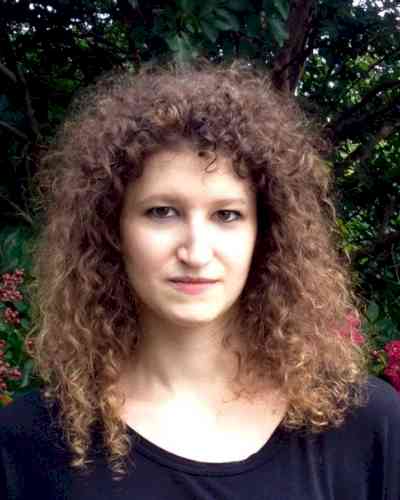
With a Center for Arts, Migration, and Entrepreneurship inaugural funding award, I will travel to Mexico City to complete archival research at the Museo Franz Mayer on the Surrealist photographer Eva Sulzer (b. 1920, Switzerland—d. 1990, Mexico).
As Fascist politics were rising across Europe, in May of 1939 Sulzer went into exile, departing for the Americas with fellow artists Wolfgang Paalen and Alice Rahon. Together, the trio traveled throughout the Pacific Northwest, where they journeyed along the coast of Alaska and British Columbia, visiting over thirty different First Nation communities. By fall, they arrived in Mexico City, where Sulzer was to live for the rest of her life. Throughout this time, she took hundreds of photographs documenting her travels, a portion of which were published in the Surrealist magazine DYN (1942–1944) and displayed in the 1940 Exposición Internacional del Surrealismo in Mexico City. My research seeks to foreground the types of ethical sensitivity present in Sulzer’s photography, the ways in which her images reveal forms of Indigenous resilience against the continued violence of settler colonialism. Producing new scholarship on the artist, my work seeks to expand the direction of Surrealism studies in a number of ways: elevating an underexamined woman artist; narrating a more comprehensive account of Surrealism in Latin America; incorporating Indigenous Studies scholarship and theory into a field that has primarily relied on European frameworks; and reexamining exile as a form of migration, one that led to new directions in Surrealist practice.
Dr. Rachel Silveri (Art History) researches the creative practice of Eva Sulzer, a Swiss-Mexican Surrealist photographer who documented her travels with artists Wolfgang Paalen and Alice Rahon throughout the Americas in the late 1930s and early 1940s. Published in the Surrealist magazine DYN(1942–1944) and displayed in the 1940 Exposición Internacional del Surrealismo in Mexico City, Sulzer’s images record the cultures of various Indigenous and First Nations groups in Alaska and British Columbia, as well as Mesoamerican cultures throughout Mexico, engaging different communities with a sensitivity that challenges the predominance of primitivism, fetishism, and exoticism in the European Surrealism movement. Dr. Silveri’s essay “Eva Sulzer’s Documentary Surrealism” is the first scholarship in any language entirely dedicated to Sulzer’s creative practice. Her archival research on Sulzer’s work will be incorporated into future Art History curricula, including ARH 4450 Early Twentieth-Century Art and ARH 4457 Global Surrealisms.
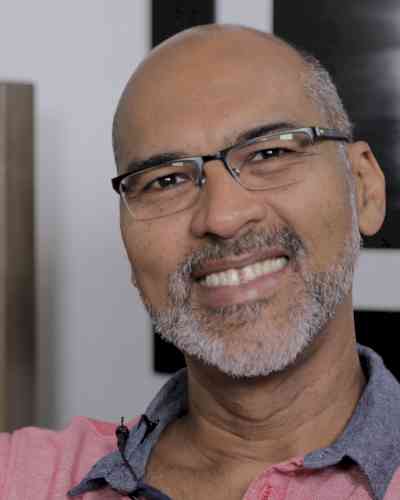
Our project's overarching mission is to curate a globally relevant, historically accurate, and educationally rich documentary that addresses the origin and global influence of Contemporary Afro-Brazilian dance.
There exists a palpable shift and intensifying desire for greater representation stemming from self-taught dancers and those who receive a formal dance education in university systems throughout the world. Our interdisciplinary production team of researchers and practitioners believe in the power of thoughtful, honest, and inclusive discourse to inspire meaningful and lasting change. Featuring the critical works and perspectives of current Black artists from Brazil and the United States, our documentary will invite audiences to affirm an appreciation for Afro-Brazilian dance. In acknowledgment and exposure of this cultural form, we may challenge the position of ballet and modern dance as the principal authority on understanding and representing expression in dance in the academy and beyond.
Brazil and the United States together are home to the highest populations of Black people in the world. Our project incorporates and explores the role technology and social media play in facilitating notions of bi-directional development of identity, artistic solidarity, and collective activism shared between Afro-Brazilian and African-American dancers, choreographers, academics and dance aficionados.
We offer our media project for consideration, which will document the relevance and reach of Contemporary Afro-Brazilian dance featuring active artists from Brazil and the United States. They willfully create and hold space for the traditionally excluded and denigrated experiences, philosophies, aesthetics, contributions, and aspirations of African descent people.
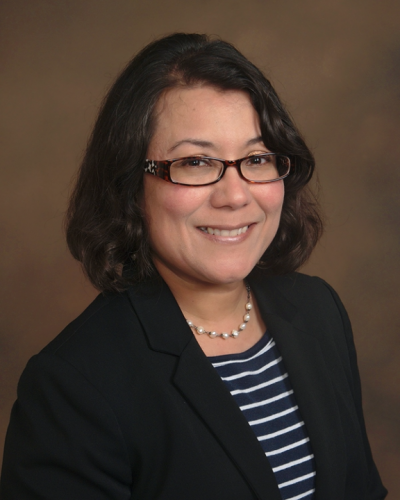
The purpose of this project is to create an archive of snapshots of relevant digital content that capture the impact that COVID-19 is having on farmworkers in Florida. It is part of the Florida Latin American and Caribbean Diaspora Initiative at the University of Florida’s Latin American and Caribbean Collection, which has the goal to identify, document, preserve, and provide access to the experience of Latin American and Caribbean immigrants in the state.
It began with existing documents at the George A. Smathers Libraries; it is now moving in the direction of community-driven collections.
The project now funded by CAME seeks to capture digital content considered as ephemeral, but that captures the voices, experiences, and opinions of people who are frequently marginalized and underrepresented, such as that of the Mexican, Central American, and Haitian farmworkers who live and work in Florida. The project will document the challenges that COVID-19 has presented them, as well as the innovative ways in which they adapt and survive. In the current environment, the mission of challenging and correcting the misrepresentation of immigrants is crucial.
The resulting collection will be freely accessible to a global audience in the Latin American and Caribbean Collection website, and like its precedents --The Cuban American Dream Timeline and The Haitian American Dream Timeline (to be released in Fall 2020)—it will be featured in the cluster of courses connected to the Intersections Group on Global Blackness and Latinx Identity.
Connect with the Center for Arts, Migration, and Entrepreneurship
Keep up with the latest news about faculty, alumni, friends and current students.
Social Media
Admissions Questions?
Request Information